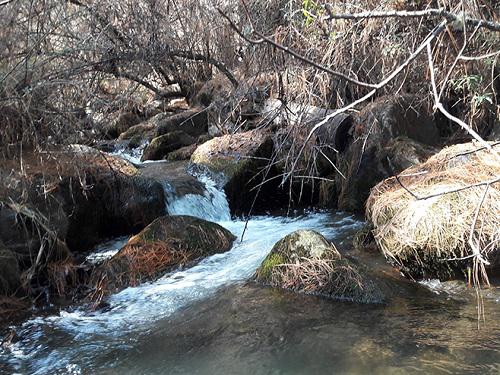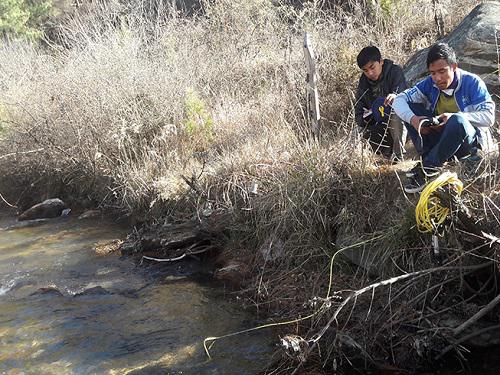Ugyen Kelzang
his proposed project is basically aimed to study, document and compare the distribution and diversity of macro-invertebrate assemblage in the headwater streams of Woochu watershed along with their habitat conditions and changes against the different time scale. It will also assess the impact of anthropogenic activities to the freshwater ecosystem and establish conservation management through conservation awareness programmes.

The study of aquatic biodiversity has become imperative to understand the threats and to take appropriate conservation action. In the world, around 126,000 species of freshwater biodiversity is estimated and in total 80% of all species are invertebrates. Experts have projected the number of species to cross over one million species when all aquatic biodiversity are known. Currently, more than 7,500 freshwater invertebrates are listed in the IUCN Red List. Approximately 12,000 different invertebrates (such as dragonflies, mussels, crayfish, and crabs) are mostly at the risk of extinction in the world.

Bhutan is in the early stage of documenting the freshwater diversity. Study on freshwater diversity in the study area has not been conducted and usually the management and conservation decision are based on the higher flora and fauna apart from macroinvertebrates. In the Woochhu Watershed, aquatic macro-invertebrate species are largely threatened by habitat loss and ongoing habitat degradation with threats from developmental activities such as town expansion, infrastructure development and other industries nearby.
Considering the limited information, macro-invertebrates biodiversity and its status remain largely isolated and unexplored. This project will evaluate and document the composition and diversity of macro-invertebrate assemblage in the headstreams of the Woochu Watershed along with their habitat conditions and changes against the different time scale thereby contribute in maintaining the status of aquatic macro-invertebrates. Safeguarding freshwater resources will unquestionably conserve the huge range of natural biodiversity. Freshwater has always been home to diverse life forms and the macro-invertebrates has principle role for both aquatic and terrestrial ecosystem with dynamic role in nutrient and food web in nature. So, using the macro-invertebrates as bio-indicator, the project will also assess the freshwater quality and note down deterioration brought about by anthropogenic activities which will establish baseline data for conservation. It will also give planners an insight into the freshwater ecological status, build capacity for freshwater conservation and management at local and national level through conservation education programmes.